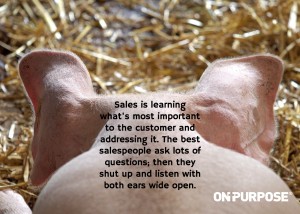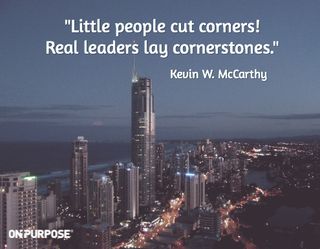What’s your business plan?
What? Don’t have one? Don’t put it off much longer!
With the ever-increasing speed of business, can business plans keep pace? In this On-Purpose Business Minute, let’s explore the shift in the nature and the need of business plans.
We’re in an era of people and speed—two generally opposing forces.
Most of us don’t embrace change readily or easily. This resistance slows down the speed of the organization and growth that is so sought by the organizational leadership and demanded by the marketplace. By embracing this basic understanding of human nature and the inherent conflict you’ll be wiser and smarter about what to do.
Armed with this insight about the change–speed challenge, the logical question is What to do about the need for speed and change.
- First, accept it.
- Second, manage it by going to the deep strategy—purpose, vision, mission, and values. These “clinical” understandings of the corporate culture need to be communicated via strategic stories that infuse and educate the team about why what they’re doing makes a difference. In other words, resistance to change falls by the wayside when the opportunity before us is contribution to a greater good. In fact, we get anxious (in a good way) and excited to see it come about. Now speed is what the team wants.
- Third, make the connection between a traditional business plan and the purpose of your organization.
Much is written these days about corporate culture.
- But what is it really?
- How is it shaped?
- What needs to happen to create and sustain it?
Deep strategy is the start in the form of an elegant business plan.
If you are a start-up or small business with ambition, then get ahead of the curve today by planning your corporate culture. If you’re leading a larger organization, then you can truly get big gains by going deep. It is more complicated the larger the business, but it is all manageable.
Do you have the “deep strategy” strength and clarity in place to engage and inspire your team so they’ll advance and accelerate the organizational goal?
Need help? Contact me.




